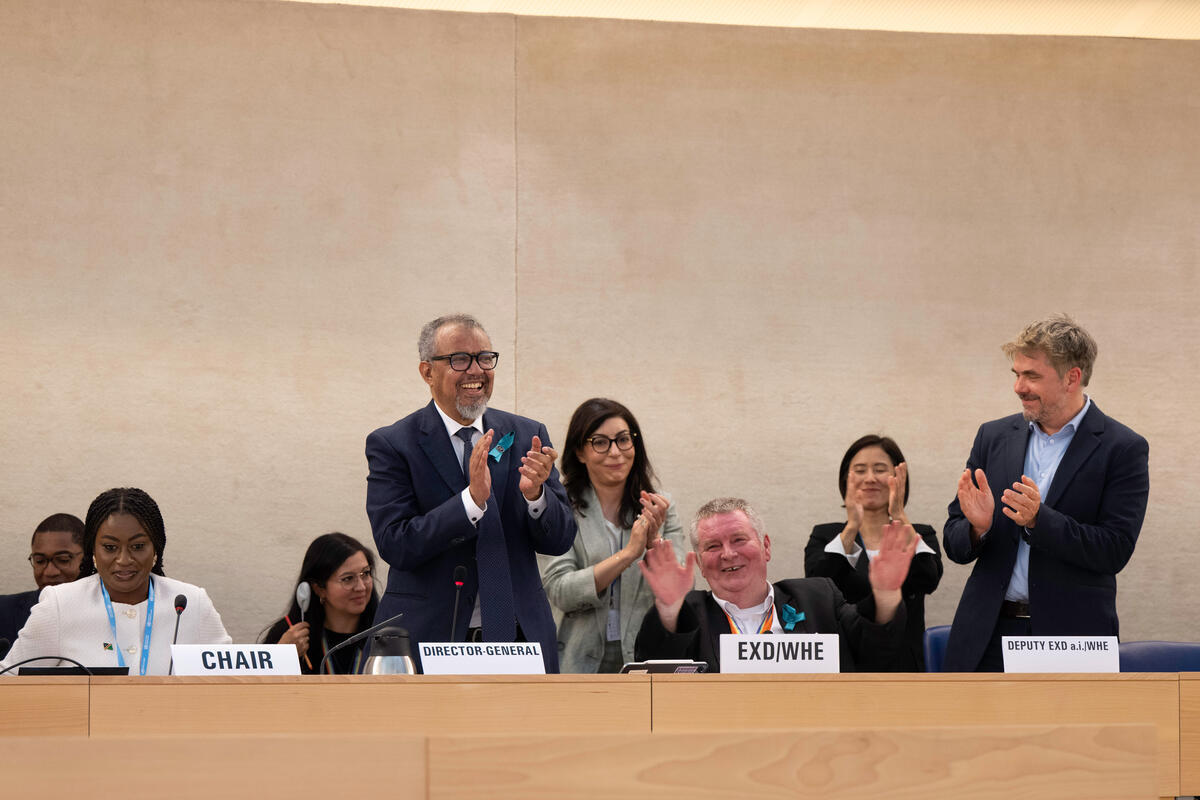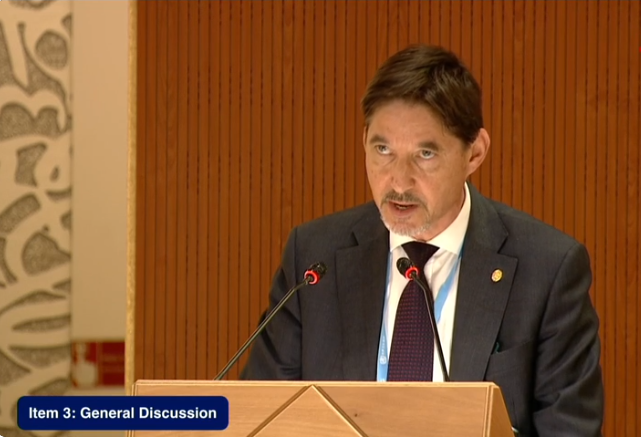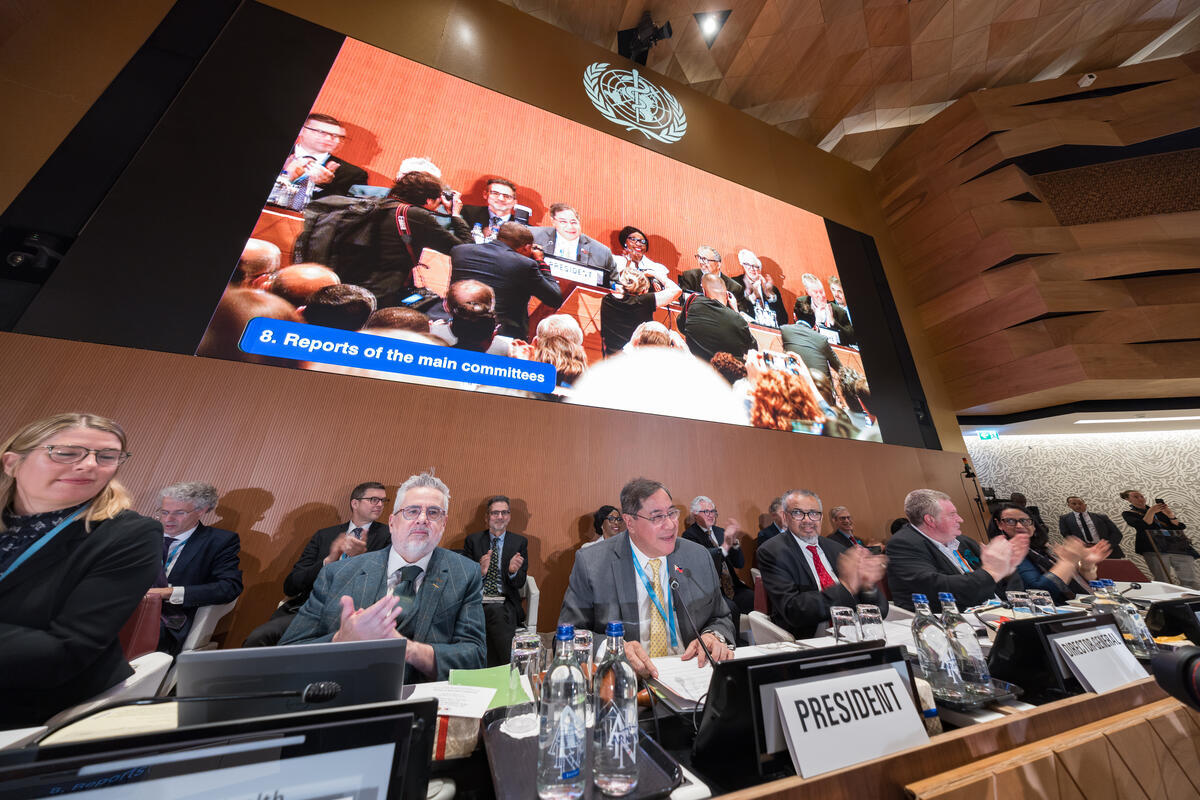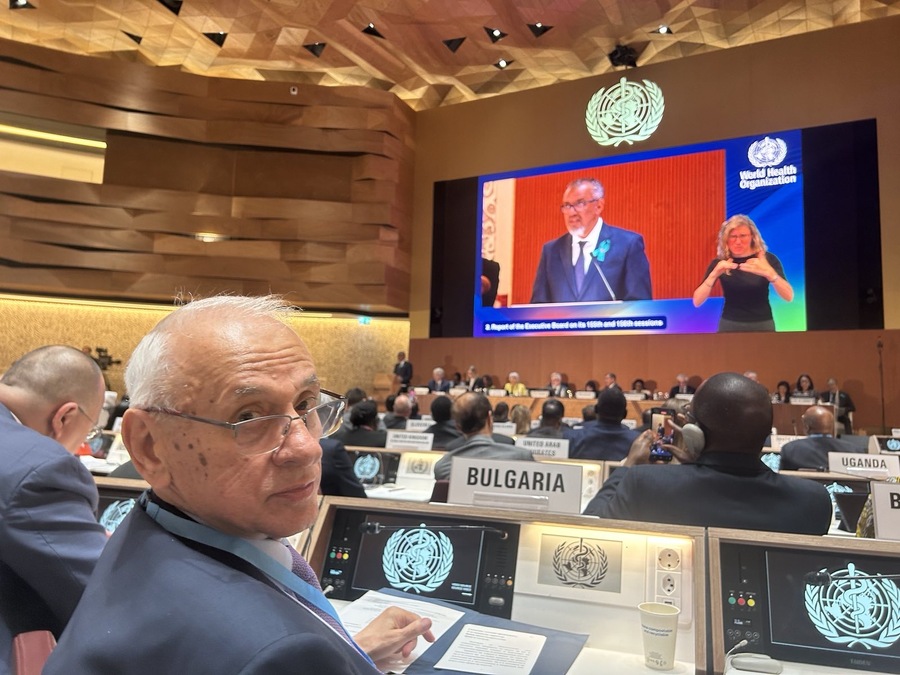Historical Decisions at the 78th WORLD HEALTH ASSEMBLY
09 June 2025 News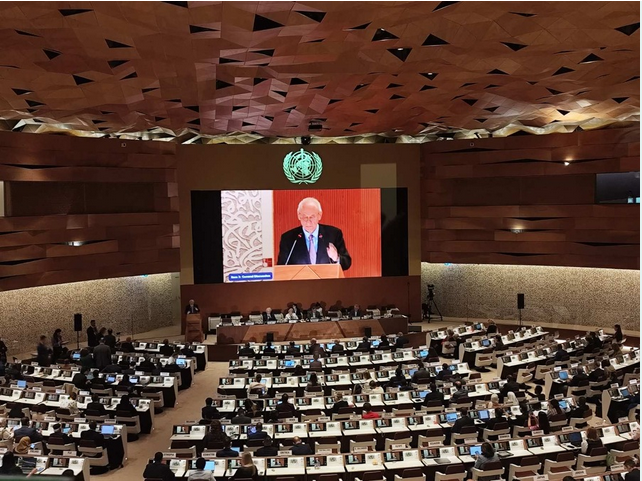
A Bulgarian delegation, led by the Minister of Health of the Republic of Bulgaria Dr. Silvi Petrov, took part in the 78th session of the World Health Assembly - a key annual forum of the World Health Organization (WHO), where priority issues are discussed and strategic decisions are taken in the field of global health.
Bulgaria was an active participant in the session and expressed a position on each of the important issues of the Assembly, making over 10 national statements on topics of importance not only for national and global health, but also in relation to the reform and financing of the organization and its future in the context of the overall institutional crisis in the UN system. Our country has proved that it is worthy of its place among the Member States of the WHO Executive Board, with substantiated proposals for improving its functioning. People's health is important not only for achieving a better quality of life, but also for building sustainable societies and achieving prosperity. It underpins economic stability and progress in every sphere of life.- said Minister Dr Silvi Petrov in his statement to the Assembly in the framework of the general debate on “One World for Health”. „ In this regard, Bulgaria, as an active member of the WHO, currently represented on the Executive Board, is working diligently to prioritize activities, spend financial resources efficiently and strengthen international cooperation to achieve the common health goals of Member States.”, stressed in his speech the Bulgarian Minister of Health.
Within the framework of the general debate of the WHA, the Permanent Representative of the Republic of Bulgaria to UN-Geneva, Ambassador Yuri Sterk, on behalf of the 9 Member States from South-Eastern Europe, in the capacity of Bulgaria as Chair of the South-Eastern European Health Network, presented the contribution of the countries of the Network and the region to global health and the forums and events held within its framework. „Together, these events reflect the Bulgarian Presidency’s strategic priorities: reinforcing health systems, accelerating digitalization, and strengthening intergovernmental collaboration “. „The Network Member States and partners emerged from these meetings with renewed determination to implement the lessons learned, deepen cooperation, and build a region that is more resilient, inclusive, and health-promoting“, stated Ambassador Sterk.
The session concluded on 27 May this year after an eight-day marathon and demonstrated the growing role and increasing use of global health policy as a tool of state governance.
An important theme of the Assembly was strengthening global pandemic prevention, preparedness and response. After three and a half years, the Member State-led process of negotiating an agreement on pandemics culminated in the adoption of a landmark international agreement. The Assembly was a critical opportunity to build consensus on collective principles and actions to protect the world from future pandemic threats. Skilful diplomacy helped steer the process away from the brink of defeat and towards the ultimate goal, despite the constant challenges of geopolitics and misinformation.
A central focus of WHA78 was the WHO financial crisis. Although fully funding WHO's growing mandate has long faced challenges, the planned withdrawal of the United States from the Organization has further strained the budget. Member States agreed to a reduced budget envelope of $4.2 billion, a 21% reduction from the original proposed budget of $5.3 billion. Additionally, States agreed to work towards a healthier financial position for WHO by approving a 20% increase in assessed contributions, which will increase the proportion of flexible and predictable funding the Organization receives each year. Broader governance and staff reforms were also on the agenda.
Alongside discussions on public health and administrative deliberations on the WHO strategy, countries used the Assembly to demonstrate their position on multiple ongoing geopolitical crises. They were challenged to reach agreement on the role of WHO and the World Health Assembly on contentious political issues - such as the wars in Ukraine and Gaza - that also have significant health implications.
Member states also addressed a wide range of health priorities, including the growing burden of non-communicable diseases such as diabetes, cancer and mental illness. They also assessed progress toward universal health coverage, explored strategies to strengthen the global health workforce, and examined the impact of climate change and pollution on health.

